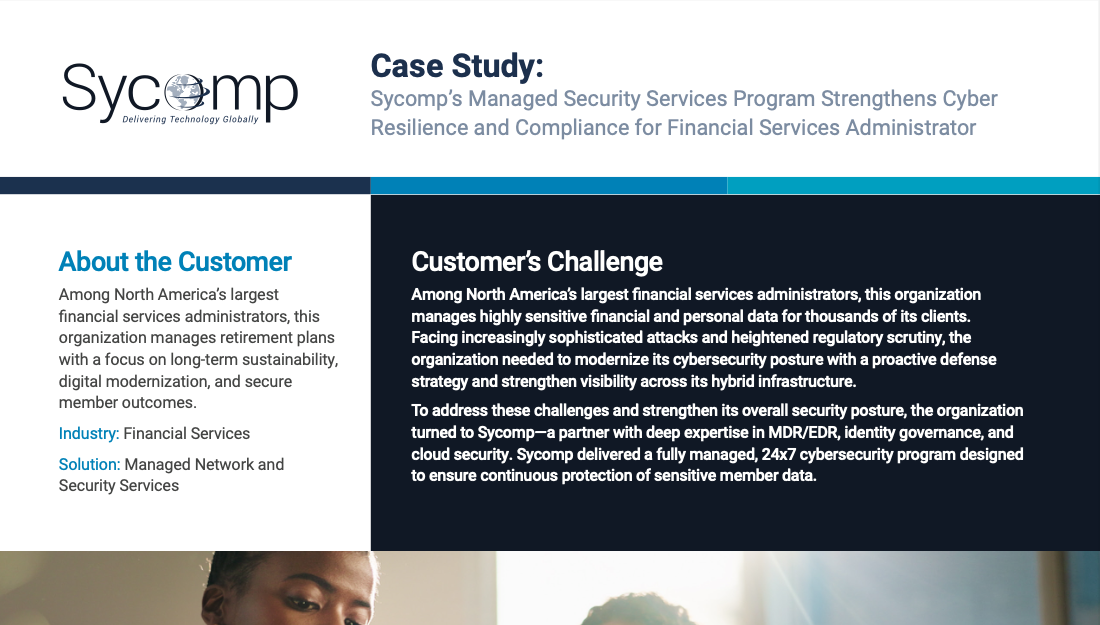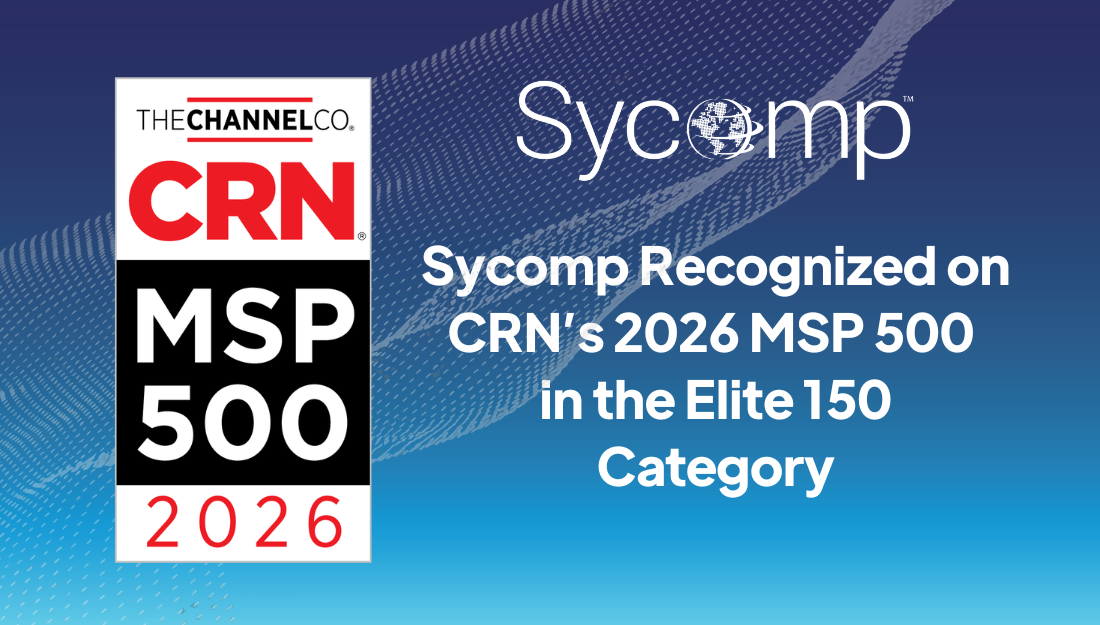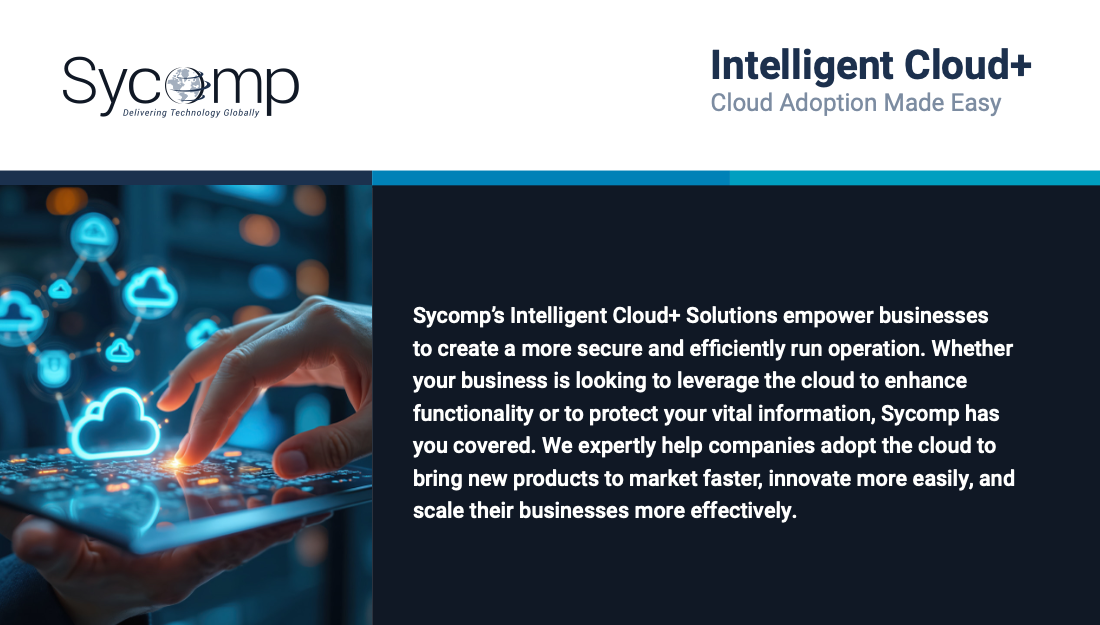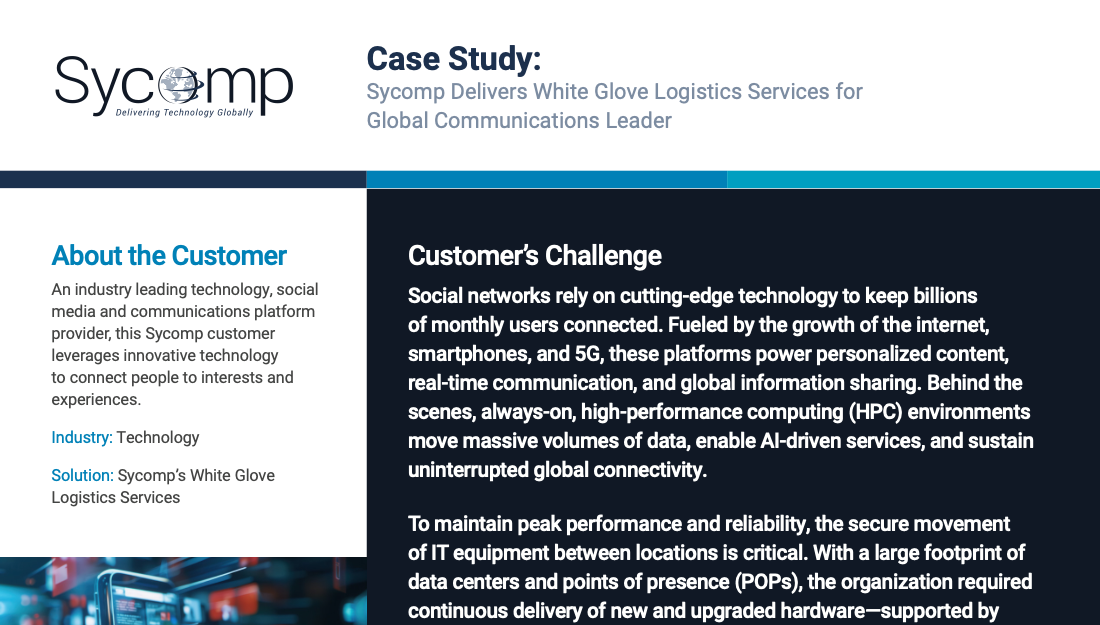
On March 14, 2024, Microsoft announced that Azure HPC Cache will be retired, with a full sunset date of September 30, 2025. For organizations running high-performance computing (HPC) workloads in Azure, this announcement creates urgency: without a transition plan, workloads relying on HPC Cache may fail after this date.
At Sycomp, we’re here to help you navigate this change. Below, we’ve outlined key questions about HPC Cache retirement—and why many organizations are moving to the Sycomp Intelligent Data Storage Platform as their next solution.
What is Azure HPC Cache?
Azure HPC Cache is a cloud service designed to enhance the performance of HPC workloads by providing faster access to file-based data. Acting as a caching layer, it reduces latency and increases throughput for read-intensive operations. It connects both on-premises and Cloud based NFS and Azure Blob, presenting them as a single aggregated namespace for cloud-based compute clients.
When is Azure HPC Cache retiring?
Microsoft will retire Azure HPC Cache on September 30, 2025. After this date, the service and all resources associated with it will be removed.
What does this mean for customers?
If you rely on HPC Cache today, you must migrate to an alternative solution before September 30, 2025, otherwise, dependent workloads will fail once the service is removed.
What are the options for Azure HPC Cache replacement?
Customers have several paths forward, depending on storage needs. One of the most proven solutions is the Sycomp Intelligent Data Storage Platform—an infrastructure as code (IaC)-based platform purpose-built for HPC, AI, and ML environments.
What is the Sycomp Intelligent Data Storage Platform?
The Sycomp Intelligent Data Storage Platform is an IaC solution that automates the deployment of scale-out storage to support high-performance workloads in real time. It offers seamless access to data across on-premises and cloud environments without compromising performance or security.
Key advantages include:
- Improved Performance: Significantly reduced latency for cloud-based HPC workloads.
- Unified Namespace: Aggregate data from NFS, Azure Blob, AWS S3, Google Cloud Storage, and more.
- Scalability: Scale cache capacity and throughput on demand.
- Simplified Management: Deploy easily through the Azure Marketplace with automated hot-data identification and online expansion.
How does the Sycomp Intelligent Data Storage Platform work?
- Storage Targets: You can access data from on-premises NFS systems, Azure Blob, or both.
- Aggregated Namespace: Present all targets as a single file system and access the data using NFSv3, NFSv4, or a high-performance client.
- Client Access: Clients mount the system and interact with files seamlessly.
- Data Management: Sycomp manages all aspects, for hybrid, or pure cloud based HPC environments.
How does migration to the Sycomp Intelligent Data Storage Platform compare to deploying HPC Cache?
Migrating to the Sycomp Intelligent Data Storage Platform is straightforward. Instances can be deployed in just minutes, making it as simple—or simpler—than setting up a new instance of HPC Cache.
What happens if Azure HPC Cache customers don’t migrate by September 30, 2025?
Once the service retires, even if your data is still in Azure, the caching layer will stop functioning. Any workflows tied to HPC Cache will break. To avoid disruption, workloads must be migrated before the deadline.
What should Azure HPC Cache customers do next?
The next step is simple: connect with Sycomp’s HPC team. We’ll guide you through a proof of concept (POC), ensure your workloads transition smoothly, and position your organization for scalable, high-performance data access well into the future.
Contact Sycomp today to begin your HPC Cache migration.
Other Resources

Sycomp’s Managed Security Services Program Strengthens Cyber Resilience and Compliance for Financial Services Administrator

Sycomp Recognized on CRN’s 2026 MSP 500 in the Elite 150 Category

Cloud Adoption Made Easy with Sycomp Intelligent Cloud+

